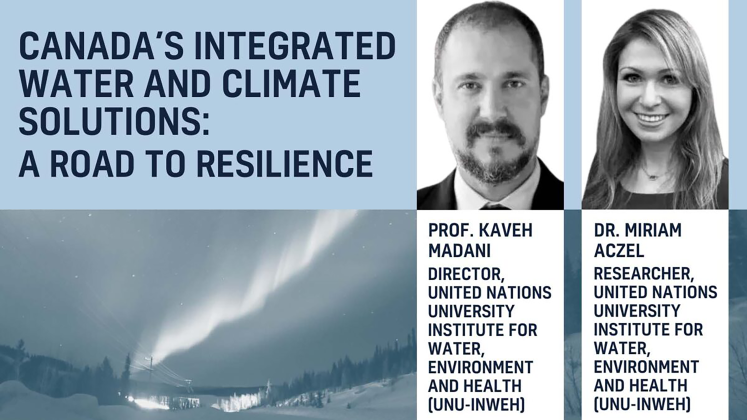As climate change reshapes our world, water is increasingly central to humanity’s grand and most urgent challenges. From devastating hurricanes and floods to extended droughts and wildfires, the impacts of a warming climate on water systems are overwhelmingly felt by various communities across Canada. These challenges affect the whole nation but most acutely felt by vulnerable populations, including Indigenous communities, who have the least capacity to adapt. Addressing these challenges demands not only technological innovation but also robust policies, cross-provincial coordination, and inclusive governance to create long-term resilience. While advanced data technologies and AI will be a tremendous help in projecting the future and adaptation strategies, a comprehensive approach towards a sustainable future requires governance reforms, infrastructure upgrades, and strong collaboration between provinces and territories.
A significant step forward in 2024 has been the establishment of Canada Water Agency, a national body created to coordinate efforts in water management, protect freshwater resources, and promote climate adaptation strategies across provinces. This agency will play a crucial role in ensuring the sustainable use of water, addressing water quality issues, managing water data, and fostering cooperation between federal, provincial, and Indigenous stakeholders.
Suggested citation: Kaveh Madani, Miriam Aczel. "Canada’s Integrated Water And Climate Solutions: A Road To Resilience," United Nations University, UNU-INWEH, 2025-01-19, https://unu.edu/inweh/article/canadas-integrated-water-and-climate-solutions-road-resilience.





